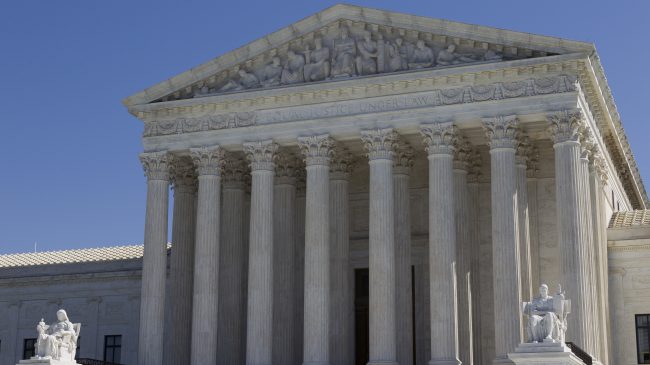No. 18-300 in the Supreme Court of the United States
Delano Farms Co., Four Star Fruit, Inc., Gerawan Farming, Inc., Bidart Bros., And Blanc Vineyards, Petitioners,
v. California Table Grape Commission, Respondent.
On Petition for a Writ of Certiorari to the Supreme Court of California
Brief of Cato Institute, Reason Foundation, Institute For Justice, and Dkt Liberty Project as Amici Curiae In Support of Petitioners
Summary of Argument
The California Supreme Court decided this case on the unlikely grounds that the California Table Grape Commission engages in “government speech” when it publishes commercial advertising urging consumption of table grapes. This despite the fact that no person employed by the California government has ever written, produced or even reviewed the speech.
It should be obvious enough that the California Table Grape Commission’s commercial messages encouraging greater consumption of table grapes is not the sort of “government speech,” without which “government would not work.” Walker v. Texas Div., Sons of Confederate Veterans, Inc., 135 S. Ct. 2239, 2246 (2015). It is indeed “easy to imagine how [California] government could function” see Pleasant Grove City v. Summum, 555 U.S. 460, 467 (2009), if the Table Grape Commission weren’t declaring that “Good things come in bunches,” or “Life is complicated. Grapes are simple.”
The point of this brief is to examine how we got to this unusual place and to propose that the Court treat forced subsidies for generic advertising the same way it treats other forced subsidies for speech.
Indeed, until Johanns v. Livestock Marketing Ass’n, 544 U.S. 550 (2005), proposed treating checkoff program advertising as “government speech,” this Court and other courts reviewed claims by objecting payors under Abood v. Detroit Bd. of Educ., 431 U.S. 209 (1977). Abood, of course, controversially sanctioned forced agency fees to subsidize public-employee unions over the objection of non-members. And as shown below, these “checkoff” programs closely resemble agency-fee regimes: both enterprises exist mainly to engage in speech activities for the benefit of a collective group, and both (it has long been claimed) require mandatory participation to avoid the so-called “problem” of “free riders.” Ironically, the California Supreme Court in this case was the last court in America to favorably cite Abood as controlling precedent—just 34 days before it was overruled by this Court in Janus v. American Federation of State, County, and Municipal Employees, 138 S. Ct. 2448 (2018).
Amici respectfully submit that Janus and the Court’s other recent compelled speech cases control here, and they offer a solution to the stream of checkoff litigation that is far preferable to expanding the government speech doctrine.
Amicus Brief: Delano Farms Co. v. California Table Grapes Commission
